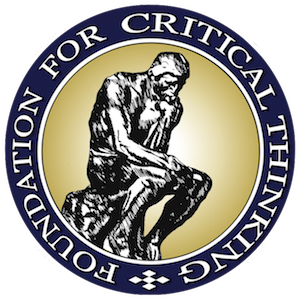
Fall2026 Online Courses
Registration Open Soon!
{"id":"4498","title":"","author":"","content":"<h2 style=\"padding: 20px; font-size: 18px; color: white; background-image: none; background-attachment: scroll; background-color: #2d4564; text-align: center; background-position: 0% 0%;\"><span style=\"font-size: x-large; font-family: helvetica;\"><strong><span style=\"font-size: 22.0pt; line-height: 107%; font-family: "Cooper Black",serif; mso-fareast-font-family: Calibri; mso-fareast-theme-font: minor-latin; mso-bidi-font-family: "Times New Roman"; mso-bidi-theme-font: minor-bidi; mso-ansi-language: EN-US; mso-fareast-language: EN-US; mso-bidi-language: AR-SA; mso-bidi-font-style: italic;\">Fall2026 Online Courses<br />Registration Open Soon!</span></strong></span></h2>","public_access":"1","public_downloads":"0","sku":"","files":[],"images":[]}
{"id":"5520","title":"","author":"","content":"<p style=\"text-align: center;\"><span style=\"color: #254c6e; font-weight: bold; text-align: right; font-size: x-large;\"><strong><span style=\"color: #990000;\"><span style=\"line-height: 107%; color: #000000;\">Courses Count Toward </span></span><span style=\"line-height: 107%; color: #000000;\"><span style=\"text-decoration: underline;\"><a href=\"https://www.criticalthinking.org/pages/certification-in-our-approach/1308\" target=\"_BLANK\">Certification in Our Approach</a></span></span></strong></span></p>\r\n<p> </p>\r\n<hr />\r\n<p style=\"text-align: center;\"><br /><span style=\"color: #333399;\"><strong><em><span style=\"font-size: large;\"><span style=\"font-family: georgia, palatino;\"><span style=\"color: #0000e0;\"><span style=\"font-size: x-large;\">Section Links . . . </span></span></span></span><span style=\"font-size: large;\"><span style=\"font-family: georgia, palatino;\"><span style=\"color: #0000e0;\"><br /><br /></span></span></span></em></strong></span></p>\r\n<ul>\r\n</ul>\r\n<p><span style=\"color: #333399;\"><span style=\"font-size: x-large;\"><span style=\"font-family: georgia, palatino;\"><span style=\"color: #0000e0;\">Important Deadlines:</span></span></span><em><span style=\"font-size: large;\"><strong><span style=\"font-family: georgia, palatino;\"><span style=\"color: #0000e0;\"><br /></span></span></strong></span></em></span></p>\r\n<p style=\"padding-left: 30px;\"><span style=\"font-size: large;\">• <a href=\"https://www.criticalthinking.org/pages/online-courses/574#important-deadlines\" target=\"_blank\"><span style=\"text-decoration: underline;\"><strong>Read Here<br /><br /></strong></span></a></span></p>\r\n<p><span style=\"color: #333399;\"><span style=\"font-size: x-large;\"><span style=\"font-family: georgia, palatino;\"><span style=\"color: #0000e0;\">Course Offerings:</span></span><strong><span style=\"font-family: georgia, palatino;\"><span style=\"color: #0000e0;\"><br /></span></span></strong></span></span></p>\r\n<p style=\"padding-left: 30px;\"><span style=\"font-size: large;\">•<span style=\"text-decoration: underline;\"><strong> <a href=\"https://www.criticalthinking.org/pages/online-courses/574#ct700-how-to-infuse-critical-thinking-into-your-instruction\" target=\"_blank\">CT700 - How to Infuse Critical Thinking Into Your Instruction</a></strong></span></span></p>\r\n<p style=\"padding-left: 30px;\"><span style=\"font-size: large;\">• <span style=\"text-decoration: underline;\"><strong><a href=\"https://www.criticalthinking.org/pages/online-courses/574#ct800-critical-thinking-tools-for-taking-charge-of-your-learning-and-your-life\" target=\"_blank\">CT800 - Critical Thinking: Tools for Taking Charge of Your Learning and Your Life</a></strong></span><a href=\"https://www.criticalthinking.org/pages/online-courses/574#ct701-how-to-infuse-critical-thinking-into-instruction-part-ii-advanced-course\" target=\"_blank\"><span style=\"text-decoration: underline;\"><strong><br /><br /></strong></span></a></span></p>\r\n<p><span style=\"color: #333399;\"><span style=\"font-size: x-large;\"><span style=\"font-family: georgia, palatino;\"><span style=\"color: #0000e0;\">General Information:</span></span><strong><span style=\"font-family: georgia, palatino;\"><span style=\"color: #0000e0;\"><br /></span></span></strong></span></span></p>\r\n<p style=\"padding-left: 30px;\"><span style=\"font-size: large;\">• <a href=\"https://www.criticalthinking.org/pages/online-courses-for-instructors/574#how-the-courses-work\" target=\"_blank\"><span style=\"text-decoration: underline;\"><strong>How the Courses Work</strong></span></a></span></p>\r\n<p style=\"padding-left: 30px;\"><span style=\"font-size: large;\">• <span style=\"text-decoration: underline;\"><strong><a href=\"https://www.criticalthinking.org/pages/online-courses/574#our-instructors\" target=\"_blank\">Our Instructors</a></strong></span></span></p>\r\n<p style=\"padding-left: 30px;\"><span style=\"font-size: large;\">• <a href=\"https://www.criticalthinking.org/pages/online-courses/574#testimonials\" target=\"_blank\"><span style=\"text-decoration: underline;\"><strong>Testimonials</strong></span></a></span></p>\r\n<p> </p>\r\n<hr />","public_access":"1","public_downloads":"0","sku":"","files":[],"images":[]}
Important Deadlines
August 24, 2026: Last day to drop with a full registration refund.
August 25, 2026: Instruction begins.
September 6, 2026: Last day to register .
October 19, 2026: Last day to drop with a prorated registration refund ($25 minimum refund deduction once the course begins).
December 14, 2026: Semester ends.
{"id":"5521","title":"Important Deadlines","author":"","content":"<p style=\"text-align: left;\"><span style=\"font-size: large;\"><strong>August 24, 2026: </strong>Last day to drop with a full registration refund.</span></p>\r\n<p style=\"text-align: left;\"><span style=\"font-size: large;\"><strong>August 25, 2026</strong></span><span style=\"font-size: large;\"><strong>: </strong>Instruction begins.</span></p>\r\n<p style=\"text-align: left;\"><span style=\"font-size: large;\"><strong>September 6, 2026: </strong>Last day to register .</span></p>\r\n<p style=\"text-align: left;\"><span style=\"font-size: large;\"><strong>October 19, 2026: </strong>Last day to drop with a prorated registration refund ($25 minimum refund deduction once the course begins).</span></p>\r\n<p style=\"text-align: left;\"><span style=\"font-size: large;\"><strong>December 14, 2026: </strong>Semester ends.</span></p>\r\n<p> </p>\r\n<hr />","public_access":"1","public_downloads":"0","sku":"","files":[],"images":[]}
Course Offerings
{"id":"4497","title":"","author":"","content":"<h2 style=\"padding: 20px; font-size: 18px; color: white; background-image: none; background-attachment: scroll; background-color: #2d4564; text-align: center; background-position: 0% 0%;\"><span style=\"font-size: x-large; font-family: helvetica;\"><strong><span style=\"font-size: 22.0pt; line-height: 107%; font-family: "Cooper Black",serif; mso-fareast-font-family: Calibri; mso-fareast-theme-font: minor-latin; mso-bidi-font-family: "Times New Roman"; mso-bidi-theme-font: minor-bidi; mso-ansi-language: EN-US; mso-fareast-language: EN-US; mso-bidi-language: AR-SA; mso-bidi-font-style: italic;\"><span style=\"font-size: xx-large;\">Course Offerings</span><br /></span></strong></span></h2>","public_access":"1","public_downloads":"0","sku":"","files":[],"images":[]}
CT700 - How to Infuse Critical Thinking into Your Instruction
{"id":"5509","title":"CT700 - How to Infuse Critical Thinking into Your Instruction","author":"","content":"<p style=\"text-align: center;\"> </p>\r\n<p style=\"text-align: center;\"><span style=\"font-size: x-large;\"><strong><span style=\"color: #800000;\">Registration Closed</span></strong></span></p>","public_access":"1","public_downloads":"0","sku":"","files":[],"images":[]}
 For instructors interested in developing their understanding of critical thinking and their ability to bring it into the foundation of instruction. This course is for teachers and faculty actively teaching during the semester.
For instructors interested in developing their understanding of critical thinking and their ability to bring it into the foundation of instruction. This course is for teachers and faculty actively teaching during the semester.
This course introduces a substantive conception of critical thinking and how to infuse this concept throughout your instruction. It fosters understanding of how to teach critical thinking skills to students through any subject or discipline, and at any level of instruction. In this course, you will be introduced to the elements of reasoning, universal intellectual standards, and intellectual traits through readings, discussions, and practical application activities. You will redesign lessons and strategies using the concepts and principles of critical thinking. You will practice strategies for Socratic discussions. You will help students learn to consciously use critical thinking concepts and strategies in learning, and in their lives. You will redesign and teach lessons you develop for your own classes and receive course credit for doing so.
As you apply your mind in this course, you can expect to:
- deepen your understanding of the foundations of critical thinking;
-
 demonstrate comprehension of the relationship between critical thinking and the learning of content in your discipline;
demonstrate comprehension of the relationship between critical thinking and the learning of content in your discipline; - develop skills and abilities in placing fairminded critical thinking at the heart of teaching and learning, including explicitly emphasizing the development of Intellectual Virtues among your students;
- design instruction that fosters explicit critical thinking throughout your course(s);
- help your students learn the tools they need for developing as ethical critical thinkers;
- come to understand the role that native pathologies of human thought play in impeding intellectual development;
- explicitly use the Elements of Reasoning and Intellectual Standards to create critical thinking lessons in your subject area(s);
- help students cultivate their ability to think within key concepts in your subject(s) and discipline(s); and
- create lessons and assessment processes that dovetail with fostering critical thinking at every moment of teaching and learning.
This course is for educators or trainers who are actively instructing students or trainees during the semester.
{"id":4494,"title":"","author":"","content":"<p>\r\n<hr />\r\n</p>","public_access":"1","public_downloads":null,"sku":"","files":[],"images":[]}
{"id":"5511","title":"CT800 - Critical Thinking: Tools for Taking Charge of Your Learning and Your Life ","author":"","content":"<p style=\"text-align: center;\"> </p>\r\n<p style=\"text-align: center;\"><strong><span style=\"font-size: x-large; color: #800000;\">Registration Closed</span></strong></p>","public_access":"1","public_downloads":"0","sku":"","files":[],"images":[]}
 Whatever you are doing right now is determined by the way you are thinking. Whatever emotions you feel are determined by your thinking. Whatever you want - all your desires - are determined by your thinking. If your thinking is unrealistic, it will lead you to many disappointments. If your thinking is overly pessimistic, it will deny you due recognition of the many things in which you should properly rejoice.
Whatever you are doing right now is determined by the way you are thinking. Whatever emotions you feel are determined by your thinking. Whatever you want - all your desires - are determined by your thinking. If your thinking is unrealistic, it will lead you to many disappointments. If your thinking is overly pessimistic, it will deny you due recognition of the many things in which you should properly rejoice.
Since few people realize the powerful role that thinking plays in their lives, few gain significant command of it. Most people are frequently victims of their thinking; that is, they are hurt rather than helped by it. Most people are their own worst enemies. Their thinking is a continual source of problems, preventing them from recognizing opportunities, keeping them from exerting energy where it will do the most good, poisoning relationships, and leading them down blind alleys.
This course will introduce you to the tools the best thinkers use and will exemplify the activities and practices you can use to begin emulating them. Here are some of the qualities of the best thinkers:
- The best thinkers think about their thinking. They do not take thinking for granted. They do not trust to fate to make them good in thinking. They notice their thinking. They reflect on their thinking. They act upon their thinking.
- The best thinkers are highly purposeful. They do not simply act. They know why they act. They know what they are about. They have clear goals and clear priorities. They continually check their activities for alignment with their goals.
-
 The best thinkers have intellectual “tools” that they use to raise the quality of their thinking. They know how to express their thinking clearly. They know how to check it for accuracy and precision. They know how to keep focused on a question and make sure that it is relevant to their goals and purposes. They know how to think beneath the surface and how to expand their thinking to include insights from multiple perspectives. They know how to think logically about and significantly.
The best thinkers have intellectual “tools” that they use to raise the quality of their thinking. They know how to express their thinking clearly. They know how to check it for accuracy and precision. They know how to keep focused on a question and make sure that it is relevant to their goals and purposes. They know how to think beneath the surface and how to expand their thinking to include insights from multiple perspectives. They know how to think logically about and significantly. - The best thinkers distinguish their thoughts from their feelings and desires. They know that wanting something to be so does not make it so. They know that one can be unjustifiably angry, afraid, or insecure. They do not let unexamined emotions determine their decisions. They have “discovered” their minds, and they examine the way their minds operate as a result. They take deliberate charge of those operations.
- The best thinkers routinely take thinking apart. They “analyze” thinking. They do not trust the mind to analyze itself automatically. They realize that analyzing thinking is an art one must consciously learn. They realize that it takes knowledge of the parts of thinking, and practice in exercising control over them.
- The best thinkers routinely evaluate thinking, determining its strengths and weaknesses. They do not trust the mind to evaluate itself automatically. They realize that the automatic ways in which the mind evaluates itself are inherently flawed. They realize that evaluating thinking is an art one must consciously learn. They realize that it takes knowledge of the universal standards for thinking, and practice in exercising control over them.
This course, as a whole, will introduce you to the tools of mind that will help you reason well through the problems and issues you face - whether in the classroom, in your personal life, or in your professional life. If you take these ideas seriously, and practice using them, you can take command of the thinking that ultimately will command the quality of your life.
As you apply your mind in this course, you can expect to:
- understand what critical thinking is, how it differs from other forms of human thought, and its foundational principles and concepts;
- become explicitly aware of the barriers to critical thinking development (egocentricity and sociocentricity), as well as how to recognize and overcome their many manifestations in daily life;
- analyze thinking by breaking it down into its fundamental components (the Elements of Thought), and learn how those components work together in reasoning;
-
 evaluate thinking for quality by holding it to universal standards of reasoning (the Intellectual Standards);
evaluate thinking for quality by holding it to universal standards of reasoning (the Intellectual Standards); - develop Intellectual Virtues, or desirable traits of mind, through practice over time;
- formulate clear, important, relevant questions;
- differentiate between questions of fact, of preference, and of reasoned judgment, and understand the best approaches to take for each of those categories;
- read critically and writing substantively;
- recognize the problem of media bias and propaganda as barriers to critical thought in individuals and human societies;
- develop a clear framework for ethical reasoning and understand how it differs from other modes of thought, such as religious, ideological, political, and legal thinking;
- learn the importance of fairminded critical thinking in self-actualization and the cultivation of fairminded critical homes, workplaces, classrooms, and societies; and
- understand the stages of critical thinking development, as well as determine your current such stage and what is required to ascend to higher stages.
{"id":4495,"title":"","author":"","content":"<p>\r\n<hr />\r\n</p>","public_access":"1","public_downloads":null,"sku":"","files":[],"images":[]}
General Information
How the Courses Work

Course Format and Platform
Everything in these courses is done online: viewing and submitting assignments, communicating with the instructor and classmates, etc.
Organization of the Courses
Each course is divided into individual modules, with each module lasting between one and three weeks. By the first day of each module, new assignments are posted for students to complete. Coursework is done on your own time, but each module's assignments are due on the final day of the module.
Live Meetings
The course meets via Zoom each week. These meetings are optional to attend; this is because we have participants from time zones around the world, making it difficult to find meeting times that work well for everyone.
Early in the semester, the instructor will contact everyone to determine meeting times that work for as many participants as possible. He or she will then notify the participants of the semester meeting schedule.
Types of Assignments
Assignments typically consist of reading, writing, watching video footage, and providing feedback on fellow participants' work through the intellectual standards that are learned during the semester.
How to Begin
Before the course begins, we email each participant with the web address of the course and his or her login information.
How to Submit Assignments
Assignments are submitted through the Center for Critical Thinking Community Online, either through the activities' 'Share' function or by posting to a private course forum.
Course Length
Each course runs for 16 weeks (one semester).
Weekly Workload
The assignments, if done well, will take an average of 3-4 hours per week for most participants.
If You Fall Behind
If cannot complete a module's assignments in time, please notify the instructor at your soonest availability. As long as you stay in communication, our instructors will accommodate your need for additional time as best they can.
Course Instructors
Each course is facilitated by an instructor educated in the Paul-Elder conception of critical thinking, under the direction of the Foundation's Senior Fellows. In recent years, some courses have been instructed by Dr. Paul Bankes , while others have been instructed by Dr. Brian Barnes .
Course Cost
Our registration fee covers the cost of tuition and all course materials. This fee is $942.
Certificates of Completion
 Digital certificates of completion are available to participants upon request.
Digital certificates of completion are available to participants upon request.
Certificates of Completion
All course materials (reading, videos, etc.) are provided digitally online.
Withdrawing from a Course
Withdrawel notices must be submitted by email to cct@criticalthinking.org or ct700@criticalthinking.org.
For refund information, please see the 'Important Deadlines' section at the top of this page.
{"id":"5654","title":"How the Courses Work","author":"","content":"<p> </p>\r\n<p style=\"text-align: left;\"><span style=\"color: #cccccc; font-family: Arial, Helvetica, sans-serif; font-size: large; font-style: italic; font-weight: bold;\"> </span></p>\r\n<div style=\"text-align: left;\">\r\n<h3><span style=\"font-size: large;\"><strong><span style=\"margin-bottom: 10px; display: block;\"><img style=\"float: left; margin-right: 20px;\" src=\"https://www.criticalthinking.org/data/courses/df9dffa648916eacf683f25da3e2d2fa51accebdaf49b_1.jpg\" alt=\"\" width=\"200\" height=\"291\" /></span></strong></span></h3>\r\n<h3><span style=\"margin-bottom: 10px; display: block; font-size: large;\"><strong>Course Format and Platform</strong><br /></span></h3>\r\n</div>\r\n<div style=\"text-align: left;\"><span style=\"font-size: large;\">Everything in these courses is done online: viewing and submitting assignments, communicating with the instructor and classmates, etc.</span></div>\r\n<div style=\"text-align: left;\"><span style=\"font-size: large;\"><br /></span></div>\r\n<div style=\"text-align: left;\"><span style=\"font-size: large;\">We provide participants with complimentary semester-long membership in our online resource and activity center, the <span style=\"text-decoration: underline;\"><strong><a href=\"https://community.criticalthinking.org/\" target=\"_blank\">Center for Critical Thinking Community Online</a></strong></span>, which is used extensively throughout each course.<br /></span></div>\r\n<div style=\"text-align: left;\">\r\n<div>\r\n<h3><span style=\"font-size: large;\"><strong><span style=\"margin-bottom: 10px; display: block;\"><br /><br />Organization of the Courses </span></strong></span></h3>\r\n</div>\r\n<div><span style=\"font-size: large;\">Each course is divided into individual modules, with each module lasting between one and three weeks. By the first day of each module, new assignments are posted for students to complete. Coursework is done on your own time, but each module's assignments are due on the final day of the module.</span></div>\r\n<div>\r\n<h3><span style=\"margin-bottom: 10px; display: block; font-size: large;\"><strong><br /><br />Live Meetings</strong><br /></span></h3>\r\n</div>\r\n<div><span style=\"font-size: large;\">The course meets via Zoom each week. These meetings are optional to attend; this is because we have participants from time zones around the world, making it difficult to find meeting times that work well for everyone.</span></div>\r\n<div><span style=\"font-size: large;\"><br /></span></div>\r\n<div><span style=\"font-size: large;\">Early in the semester, the instructor will contact everyone to determine meeting times that work for as many participants as possible. He or she will then notify the participants of the semester meeting schedule.<br /></span></div>\r\n<div>\r\n<h3><span style=\"margin-bottom: 10px; display: block; font-size: large;\"><strong><br /><br />Types of Assignments</strong><br /></span></h3>\r\n</div>\r\n<div><span style=\"font-size: large;\">Assignments typically consist of reading, writing, watching video footage, and providing feedback on fellow participants' work through the intellectual standards that are learned during the semester. <br /><br /></span></div>\r\n</div>\r\n<div style=\"text-align: left;\">\r\n<h3><span style=\"margin-bottom: 10px; display: block; font-size: large;\"><strong>How to Begin</strong><br /></span></h3>\r\n<span style=\"font-size: large;\"> Before the course begins, we email each participant with the web address of the course and his or her login information. <br /><br /> </span>\r\n<h3><span style=\"margin-bottom: 10px; display: block; font-size: large;\"><strong>How to Submit Assignments</strong><br /></span></h3>\r\n</div>\r\n<p style=\"text-align: left;\"><span style=\"font-size: large;\">Assignments are submitted through the <span style=\"text-decoration: underline;\"><strong><a href=\"https://community.criticalthinking.org/\" target=\"_blank\">Center for Critical Thinking Community Online</a></strong></span>, either through the activities' 'Share' function or by posting to a private course forum.<br /><br /></span></p>\r\n<h3 style=\"text-align: left;\"><span style=\"font-size: large;\"><strong><span style=\"margin-bottom: 10px; display: block;\">Course Length </span></strong></span></h3>\r\n<div style=\"text-align: left;\"><span style=\"font-size: large;\"> Each course runs for 16 weeks (one semester). <br /><br /> </span></div>\r\n<h3 style=\"text-align: left;\"><span style=\"margin-bottom: 10px; display: block; font-size: large;\"><strong>Weekly Workload</strong><br /></span></h3>\r\n<p style=\"text-align: left;\"><span style=\"font-size: large;\"> The assignments, if done well, will take an average of 3-4 hours per week for most participants. </span></p>\r\n<p style=\"text-align: left;\"> </p>\r\n<h3 style=\"text-align: left;\"><span style=\"margin-bottom: 10px; display: block; font-size: large;\"><strong>If You Fall Behind</strong><br /></span></h3>\r\n<p style=\"text-align: left;\"><span style=\"font-size: large;\">If cannot complete a module's assignments in time, please notify the instructor at your soonest availability. As long as you stay in communication, our instructors will accommodate your need for additional time as best they can.</span></p>\r\n<p style=\"text-align: left;\"> </p>\r\n<p style=\"text-align: left;\"><span style=\"font-size: large;\"><strong><span style=\"margin-bottom: 10px; display: block;\">Course Instructors</span></strong></span></p>\r\n<p style=\"text-align: left;\"><span style=\"font-size: large;\"> Each course is facilitated by an instructor educated in the Paul-Elder conception of critical thinking, under the direction of the Foundation's Senior Fellows. In recent years, some courses have been instructed by <span style=\"text-decoration: underline;\"> <strong> <a href=\"https://www.criticalthinking.org/pages/dr-paul-bankes/1196\" target=\"_BLANK\"> Dr. Paul Bankes </a> </strong> </span> , while others have been instructed by <span style=\"text-decoration: underline;\"> <strong> <a href=\"https://www.criticalthinking.org/pages/mr-brian-barnes/1107\" target=\"_BLANK\"> Dr. Brian Barnes </a> </strong> </span> . </span></p>\r\n<div style=\"text-align: left;\"><span style=\"font-size: large;\"> <br /> </span></div>\r\n<div style=\"text-align: left;\"><span style=\"margin-bottom: 10px; display: block; font-size: large;\"><strong>Course Cost</strong><br /></span></div>\r\n<p style=\"text-align: left;\"><span style=\"font-size: large;\"> Our registration fee covers the cost of tuition and all course materials. This fee is $942. <br /> <br /> </span></p>\r\n<h3 style=\"text-align: left;\"><span style=\"margin-bottom: 10px; display: block; font-size: large;\"><strong>Certificates of Completion</strong><br /></span></h3>\r\n<p style=\"text-align: left;\"><span style=\"font-size: large;\"><img class=\"selected\" style=\"cursor: pointer; float: right; height: auto; width: 178px;\" src=\"https://www.criticalthinking.org/data/pages/99/efc68c13741432bb2b48893939639dc55bcf7d6fd7c5f.png\" alt=\"\" />Digital certificates of completion are available to participants upon request. <br /> <br /> </span></p>\r\n<h3 style=\"text-align: left;\"><span style=\"margin-bottom: 10px; display: block; font-size: large;\"><strong>Certificates of Completion</strong><br /></span></h3>\r\n<p style=\"text-align: left;\"><span style=\"font-size: large;\"> All course materials (reading, videos, etc.) are provided digitally online.<br /> <br /> </span></p>\r\n<p style=\"text-align: left;\"><span style=\"font-size: large;\"><strong>Withdrawing from a Course</strong></span></p>\r\n<p style=\"text-align: left;\"><span style=\"font-size: large;\">Withdrawel notices must be submitted by email to <span style=\"text-decoration: underline;\"><strong><a href=\"mailto: cct@criticalthinking.org\" target=\"_blank\">cct@criticalthinking.org</a></strong></span> or <span style=\"text-decoration: underline;\"><strong><a href=\"mailto: ct700@criticalthinking.org\" target=\"_blank\">ct700@criticalthinking.org</a></strong></span>.</span></p>\r\n<p style=\"text-align: left;\"><span style=\"font-size: large;\">For refund information, </span><span style=\"font-size: large;\">please see the '<span style=\"text-decoration: underline;\"><strong><a href=\"https://www.criticalthinking.org/pages/online-courses-for-instructors/574#important-deadlines\" target=\"_self\">Important Deadlines</a></strong></span>' section at the top of this page.</span></p>","public_access":"1","public_downloads":"0","sku":"","files":[],"images":[]}
Our Instructors
{"id":5513,"title":"Our Instructors","author":"","content":"","public_access":"1","public_downloads":null,"sku":"","files":[],"images":[]}
Our instructors are long-time Fellows or Scholars of the Foundation for Critical Thinking. All are first-generation Paulian scholars, having studied directly with Dr. Richard Paul , and all are experienced in teaching critical thinking in higher education.
{"id":"5516","title":"","author":"","content":"<p> </p>\r\n<hr />","public_access":"1","public_downloads":"0","sku":"","files":[],"images":[]}
Testimonials
{"id":5515,"title":"Testimonials","author":"","content":"","public_access":"1","public_downloads":null,"sku":"","files":[],"images":[]}
- "I told my boss this week during a faculty meeting that this has been the best [higher education] course I've ever taken."
- "The instruction and course content was phenomenal. . . . this course has added significant value to my life."
- "I have really enjoyed this course. . . meetings were engaging and very informative. I plan to attend additional offerings this academic year."
-
 "It was a pleasure for me to attend and complete the CT800: Critical Thinking: Tools for Taking Charge of Your Learning and Your Life.
"It was a pleasure for me to attend and complete the CT800: Critical Thinking: Tools for Taking Charge of Your Learning and Your Life.
The course is well structured and . . . gradually takes the students from studying the basics of the critical thinking elements and standards up to the more demanding exercises . . .
I noticed that now the Foundation gives all online course participants a semester-long free admission to the Center for Critical Thinking Community Online. I find this access to be very useful to foster critical thinking comprehension . . .
. . . the teacher. Dr Brian Barnes, has been very proactive in providing students with all the necessary clarifications along the different live Socratic Discussions and written comments.
Overall, I am very satisfied with the CT800 class. I would definitely recommend it to friends and acquaintances."
- "I took the on-line course [CT700] and found it very helpful. I am teaching English . . . Guided by the concept of critical thinking and the suggested methods introduced in the course and the books, we have reconstructed our curriculum and written teaching materials. We have made critical thinking one of the objectives for our courses (e.g. reading, speaking, writing) and designed activities that promote critical thinking in almost every class (e.g. activities that require analysis, evaluation, etc.)
 We have been doing this for more than three years and I can see positive effects from my observation and students' feedback. Grade 2016 students are more aware of being logical and supporting their ideas with evidence, compared to students from previous years. They are also aware of looking at things from multiple perspectives. More students have intellectual pursuit and better prepared for academic study. These give me confidence in continue the critical thinking infused language instruction and I would try to find ways to do better."
We have been doing this for more than three years and I can see positive effects from my observation and students' feedback. Grade 2016 students are more aware of being logical and supporting their ideas with evidence, compared to students from previous years. They are also aware of looking at things from multiple perspectives. More students have intellectual pursuit and better prepared for academic study. These give me confidence in continue the critical thinking infused language instruction and I would try to find ways to do better."
- "I would like to express my deepest appreciation to you [Dr. Linda Elder] and Richard Paul. You both created a system for life guidance through your very arduous work on critical thinking. Thank you for adding the intellectual virtues to critical thinking. Critical thinking without the intellectual virtues is still narrow-minded thinking. Thanks to [instructor] Paul Bankes [CT700], we could get familiar with fairminded critical thinking this semester in the class.
Since I have also attended a couple of courses in psychology, I could better understand what majestic guidance you have created to help us have better lives by improving our way of thinking. I just wanted to say "THANK YOU" for each second you have devoted in this way. I will try to internalize fairminded critical thinking in my life and help to develop this idea as much as I possibly can.
I hope one day I can claim that I am from the community of Fairminded Critical Thinking."
- "I would like to extend my sincere gratitude for allowing me to complete the CT700 Course. It has been the most humbling and enlightening experience of my academic life. . . .
I will now embark on my vision to make a difference in the South African Education System. Once, again, my gratitude goes out to you . . . "
- "CT700 was an excellent course that changed my thinking and life. It was painful at times and I found it took time for me to meaningfully complete the assignments. As I worked through the first few weeks, I also wondered if I would be able to change my thinking process. By the end of the course, I grew personally and professionally in ways that I wasn’t sure were possible."
{"id":5519,"title":"","author":"","content":"<p>\r\n<hr />\r\n</p>","public_access":"1","public_downloads":null,"sku":"","files":[],"images":[]}

 For instructors interested in developing their understanding of critical thinking and their ability to bring it into the foundation of instruction. This course is for teachers and faculty actively teaching during the semester.
For instructors interested in developing their understanding of critical thinking and their ability to bring it into the foundation of instruction. This course is for teachers and faculty actively teaching during the semester.  demonstrate comprehension of the relationship between critical thinking and the learning of content in your discipline;
demonstrate comprehension of the relationship between critical thinking and the learning of content in your discipline;  Whatever you are doing right now is determined by the way you are thinking. Whatever emotions you feel are determined by your thinking. Whatever you want - all your desires - are determined by your thinking. If your thinking is unrealistic, it will lead you to many disappointments. If your thinking is overly pessimistic, it will deny you due recognition of the many things in which you should properly rejoice.
Whatever you are doing right now is determined by the way you are thinking. Whatever emotions you feel are determined by your thinking. Whatever you want - all your desires - are determined by your thinking. If your thinking is unrealistic, it will lead you to many disappointments. If your thinking is overly pessimistic, it will deny you due recognition of the many things in which you should properly rejoice.  The best thinkers have intellectual “tools” that they use to raise the quality of their thinking. They know how to express their thinking clearly. They know how to check it for accuracy and precision. They know how to keep focused on a question and make sure that it is relevant to their goals and purposes. They know how to think beneath the surface and how to expand their thinking to include insights from multiple perspectives. They know how to think logically about and significantly.
The best thinkers have intellectual “tools” that they use to raise the quality of their thinking. They know how to express their thinking clearly. They know how to check it for accuracy and precision. They know how to keep focused on a question and make sure that it is relevant to their goals and purposes. They know how to think beneath the surface and how to expand their thinking to include insights from multiple perspectives. They know how to think logically about and significantly.  evaluate thinking for quality by holding it to universal standards of reasoning (the Intellectual Standards);
evaluate thinking for quality by holding it to universal standards of reasoning (the Intellectual Standards); 
 Digital certificates of completion are available to participants upon request.
Digital certificates of completion are available to participants upon request.  "It was a pleasure for me to attend and complete the CT800: Critical Thinking: Tools for Taking Charge of Your Learning and Your Life.
"It was a pleasure for me to attend and complete the CT800: Critical Thinking: Tools for Taking Charge of Your Learning and Your Life.  We have been doing this for more than three years and I can see positive effects from my observation and students' feedback. Grade 2016 students are more aware of being logical and supporting their ideas with evidence, compared to students from previous years. They are also aware of looking at things from multiple perspectives. More students have intellectual pursuit and better prepared for academic study. These give me confidence in continue the critical thinking infused language instruction and I would try to find ways to do better."
We have been doing this for more than three years and I can see positive effects from my observation and students' feedback. Grade 2016 students are more aware of being logical and supporting their ideas with evidence, compared to students from previous years. They are also aware of looking at things from multiple perspectives. More students have intellectual pursuit and better prepared for academic study. These give me confidence in continue the critical thinking infused language instruction and I would try to find ways to do better."